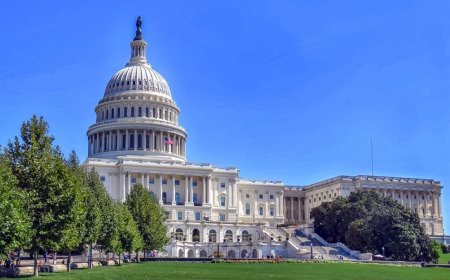IRS Grants Temporary Relief on Crypto Tax Reporting Rules Amid Legal Challenges

The Internal Revenue Service (IRS) has announced a temporary delay in implementing new cost-basis reporting rules for cryptocurrency transactions, offering a reprieve to digital asset investors amid ongoing regulatory and legal debates.
This move underscores the IRS’s recognition of the complexities involved in cryptocurrency taxation and the importance of adjusting regulations to align with the evolving digital asset landscape.
Postponed Cost-Basis Rules
The relief suspends a proposed rule that would have required centralized cryptocurrency exchanges to use the First In, First Out (FIFO) accounting method by default for calculating capital gains. FIFO typically assumes the sale of the oldest assets first, which can result in higher taxable gains during market rallies.
The postponement, effective until December 31, 2025, allows brokers additional time to implement systems accommodating alternative accounting methods.
Investors and tax experts had raised concerns that enforcing FIFO could lead to inflated tax liabilities, particularly for those holding assets acquired at significantly lower prices. Shehan Chandrasekera, Head of Tax Strategy at CoinTracker, warned that mandatory FIFO implementation could disproportionately impact crypto taxpayers, potentially triggering excessive tax burdens.
During the relief period, taxpayers can continue using other accounting methods, such as Highest In, First Out (HIFO) or Specific Identification (Spec ID), which enable more strategic asset selection and may help reduce tax obligations.
Legal and Industry Pushback
The IRS’s announcement comes amidst growing legal and industry opposition to its expanded approach to cryptocurrency reporting. On December 28, the Blockchain Association and the Texas Blockchain Council filed a lawsuit challenging the IRS’s broadened requirements.
The lawsuit disputes new regulations mandating brokers to report all cryptocurrency transactions, including those on decentralized exchanges (DEXs), arguing that such rules overstep constitutional limits. Critics claim the expanded framework imposes excessive burdens on market participants and exceeds the agency’s authority.
Under these rules, set to take effect in 2027, brokers would be required to disclose taxpayer information and report gross proceeds from crypto transactions.
A Step Toward Balance
The temporary relief reflects the IRS’s acknowledgment of the crypto market’s unique challenges and diverse investor strategies. It also signals the agency’s willingness to engage with industry stakeholders to create fair and feasible regulations.
For investors and market participants, the delay is seen as a positive development, providing time to adapt to regulatory changes and implement compliance measures. This decision reinforces the importance of balancing robust oversight with the practical realities of the rapidly evolving cryptocurrency ecosystem.
What's Your Reaction?




































